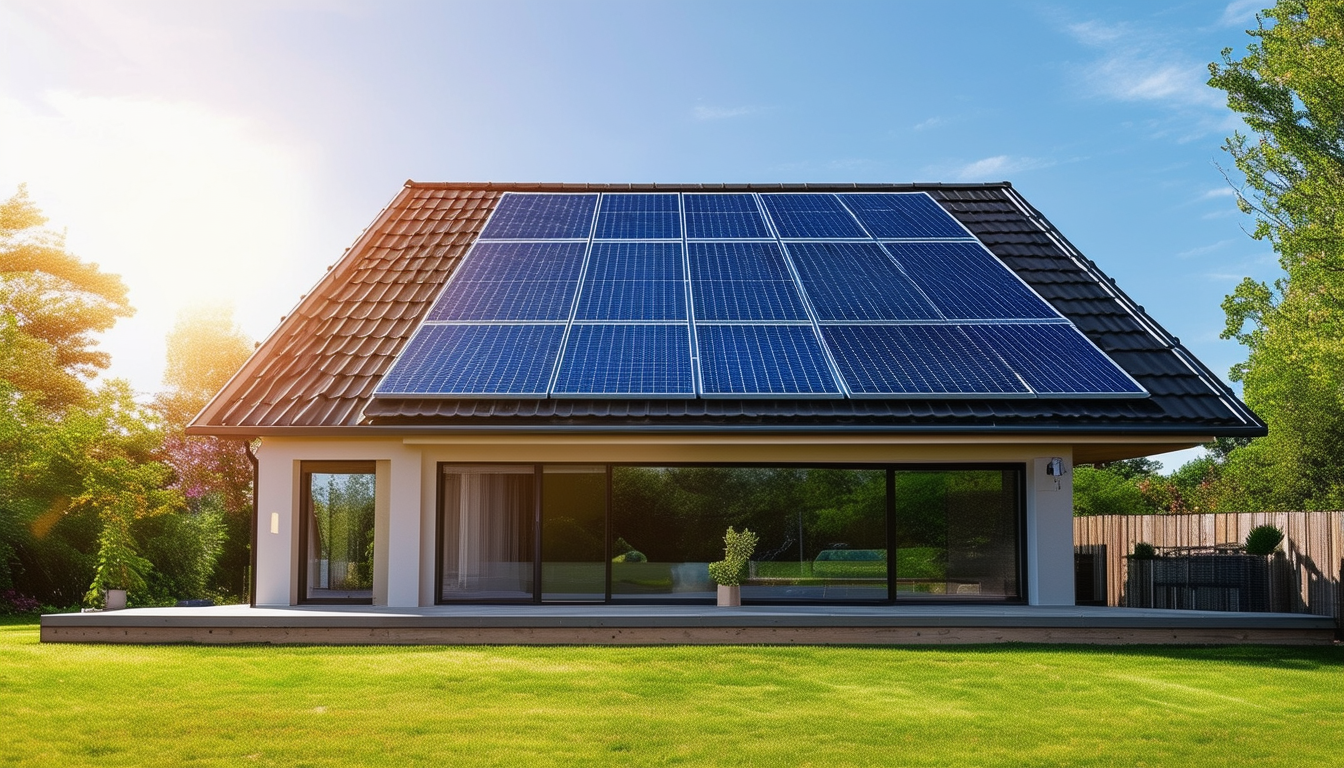
Discover how solar energy can transform your home into an eco-friendly powerhouse while saving you money on energy bills.

Understanding Solar Energy: The Basics
Solar energy is derived from the sun’s radiation and can be converted into electricity or heat. It is a renewable and inexhaustible resource, which makes it an excellent alternative to fossil fuels. By harnessing solar energy, homeowners can reduce their reliance on traditional energy sources, lower their carbon footprint, and contribute to a more sustainable environment.
The most common method of capturing solar energy is through photovoltaic (PV) panels, which convert sunlight directly into electricity. Another method is solar thermal systems, which use sunlight to heat water or air for domestic use. Understanding these basics can help homeowners make informed decisions about incorporating solar energy into their homes.
Benefits of Solar Energy for Homeowners
One of the primary benefits of solar energy for homeowners is the potential for significant savings on energy bills. Once the initial installation costs are covered, the ongoing expenses are minimal compared to traditional energy sources. Solar panels can produce electricity for decades with little maintenance, providing long-term financial benefits.
In addition to cost savings, solar energy systems can increase the value of your home. Properties equipped with solar panels are often more attractive to buyers and can command higher prices. Moreover, using solar energy reduces greenhouse gas emissions, contributing to a cleaner and healthier environment.


Types of Solar Panels and Systems
There are several types of solar panels available, each with its own advantages and disadvantages. Monocrystalline panels are made from a single crystal structure and are known for their high efficiency and longevity. Polycrystalline panels, on the other hand, are made from multiple crystal structures and are typically less expensive but slightly less efficient.
In addition to the types of panels, there are different solar energy systems to consider. Grid-tied systems are connected to the public electricity grid and allow homeowners to sell excess energy back to the utility company. Off-grid systems are entirely independent and require battery storage to ensure a continuous power supply. Hybrid systems combine the benefits of both, providing flexibility and reliability.
Installation Process: What to Expect
The installation process for solar panels typically begins with a site assessment to determine the best location and orientation for the panels. This assessment considers factors such as roof angle, shading, and local weather patterns. Once the site is deemed suitable, the next step is obtaining the necessary permits and approvals from local authorities.
The actual installation involves mounting the panels on the roof or ground, connecting them to the inverter, and linking the system to the electrical grid or battery storage. The entire process can take a few days to a few weeks, depending on the complexity of the installation. It’s important to work with a reputable installer to ensure the system is installed correctly and safely.
Maximizing Your Solar Investment: Tips and Maintenance
To maximize the return on your solar investment, it’s important to keep the panels clean and free from debris. Regular cleaning can ensure optimal performance and efficiency. Additionally, monitoring the system’s performance through a solar monitoring app can help identify any issues early on and ensure the system is operating at peak efficiency.
Routine maintenance, such as checking for loose connections and ensuring the inverter is functioning correctly, is also crucial. While solar panels require minimal maintenance, addressing any issues promptly can extend the lifespan of the system and maximize your energy savings. Additionally, taking advantage of any available incentives or rebates can further enhance the financial benefits of your solar investment.

